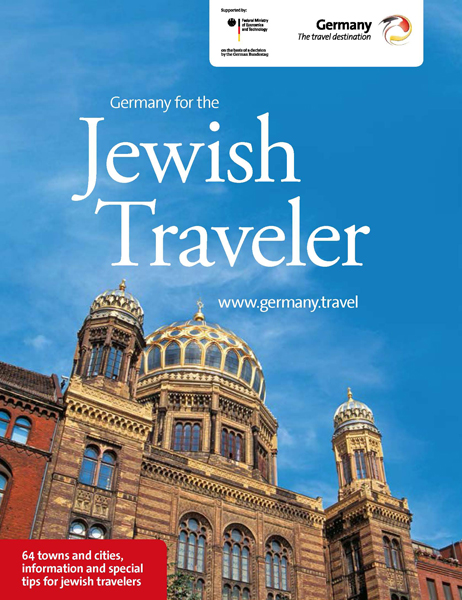
To further encourage Jewish tourism, the German National Tourist Board recently released “Germany for the Jewish Traveler,” its first “e-guide” to help Jewish visitors find Jewish history in Germany. Photo courtesy of German National Tourist Board
(RNS) For decades after the Holocaust, many Jewish people balked at the idea of visiting Germany, the nation that gave rise to Hitler and threw its collective energy behind his campaign to exterminate the Jews of Europe.
But an increasing number of Jewish people seem to be making the trip: Overnight visits by Israelis increased more than 15 percent from 2012 to 2013, according to the German National Tourist Board. To further encourage Jewish tourism, the board recently released the 57-page “Germany for the Jewish Traveler,” its first “e-brochure” to help Jewish visitors find Jewish history in Germany.
As the board notes, Germany is home to 200,000 Jews — the third-largest Jewish community in Western Europe and the only one that is growing. “Germany — from North to South, East to West — abounds with celebrated sites evoking the country’s rich Jewish history,” the guide notes.
Such upbeat descriptions of German-Jewish history would risk appalling Jewish tourists if the guide did not also explicitly address the Holocaust. The Nazis killed 88 percent of Germany’s prewar population, according to the Anti-Defamation League, a group that tracks anti-Semitism.
The guide points out prewar sites that may be especially interesting to Jewish visitors, such as the birthplace of Reform Judaism in Hamburg. But it also shows tourists where they may find the remnants of concentration camps, and memorials to Europe’s murdered Jews.
“For centuries, academics and historians are destined to continue to question, argue and examine how a country and a people admired for their advancement, culture and civilization could have been responsible for the infamy we know today as ‘the Holocaust,'” the guide reads.
It continues: “Yet, what is beyond argument is how succeeding generations of Germans have demonstrated revulsion at the deeds of their forbears and have dedicated themselves to forging an entirely different Germany.”
YS/AMB END MARKOE





